MercoPress. South Atlantic News Agency
Tag: Eurozone unemployment
-
Wednesday, August 2nd 2017 - 20:33 UTC
Euro zone unemployment falls to its lowest since February 2009; inflation remains below 2%
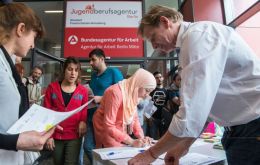
The unemployment rate in the Euro zone has fallen to its lowest since February 2009, according to the latest official figures. The rate dropped to 9.1% last month, from a downwardly revised 9.2% in May. Separately, inflation remained unchanged in July at 1.3%, according to a preliminary estimate from Eurostat, the European Union's statistics office.
-
Tuesday, May 3rd 2016 - 12:02 UTC
Euro zone economy expands faster than expected in the first quarter
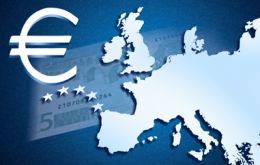
The Euro-zone's economy grew by a faster-than-expected 0.6% in the first three months of the year, according to official statistics. The growth rate in the 19-nation bloc doubled from the 0.3% rate recorded in the previous quarter, and was above analysts' expectations of 0.4%.
-
Monday, November 23rd 2015 - 08:16 UTC
Worst effects of European recession risk becoming permanent

The worst effects of the European recession risk becoming permanent in places, according to a left-leaning think tank. The IPPR's latest report pointed to the high level of unemployment and underemployment across Europe and said the chances of these becoming entrenched is “deeply alarming”. It said there was 10% unemployment and a 5% underemployment rate in Europe.
-
Friday, May 1st 2015 - 06:22 UTC
Euro zone scrapes out of deflation in April; unemployment remains above 11%
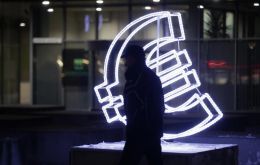
Consumer prices in the Euro zone scraped out of deflation in April after four months, official data has shown, boosting hopes of economic recovery in Europe. The inflation rate in the 19 nations that use the Euro stood at 0% in April, up from a rate of -0.1% in March. Eurostat said that low energy costs were continuing to cut living costs.
-
Tuesday, November 18th 2014 - 06:52 UTC
David Cameron: Red lights are flashing on the global economy (*)
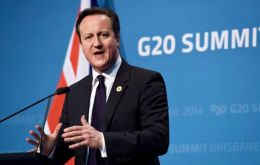
The G20 meeting in Brisbane made it clearer than ever to me that we in Britain must stick to our long-term economic plan. Six years on from the financial crash that brought the world to its knees, red warning lights are once again flashing on the dashboard of the global economy
-
Thursday, November 7th 2013 - 07:44 UTC
EU recession close to inflection point but unemployment remains at 'unacceptable levels'
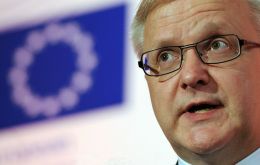
The Euro zone economy's gross domestic product will grow 1.1% in 2014 and 1.7% in 2015, with imbalances diminishing as unemployment remains at unacceptable levels, the European Commission said in a report released earlier this week.
-
Saturday, November 2nd 2013 - 15:55 UTC
Unemployment in Euro-zone remained at record high 12.2% in September

The unemployment rate in the 17-nation Euro-zone remained at a record high of 12.2% in September as the bloc’s recent recovery failed to generate new jobs, official data shows. The number rose by 60,000 to 19.45 million, while the jobless rate for those aged under 25 edged up to 24.1% from 24% in August, according to Eurostat, the European Union’s statistics agency.
-
Wednesday, July 31st 2013 - 16:54 UTC
Slightly encouraging signs from the EU in employment and manufacturing
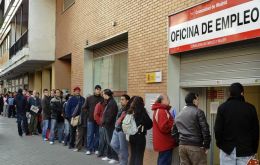
The number of unemployed in the Euro-zone has fallen, slightly, for the first time since April 2011. The fall in June came amid brightening economic prospects, suggesting an end to the bloc’s stubborn recession.
-
Saturday, March 9th 2013 - 04:16 UTC
ECB calls on governments to promote growth and combat the tragedy of unemployment

European Central Bank President Mario Draghi urged indebted governments to move beyond spending cuts and tax hikes and introduce reforms that would boost growth and reduce the “tragedy” of unemployment.
-
Friday, March 1st 2013 - 13:29 UTC
Euro-zone unemployment reaching 12%; Greece and Spain above 26%

Unemployment in the Euro zone reached a new high of 11.9% in January, as an additional 201,000 people joined the jobless ranks in the crisis-battered bloc, latest data showed Friday. The unemployment rate has been increasing relentlessly since the middle of 2011.
